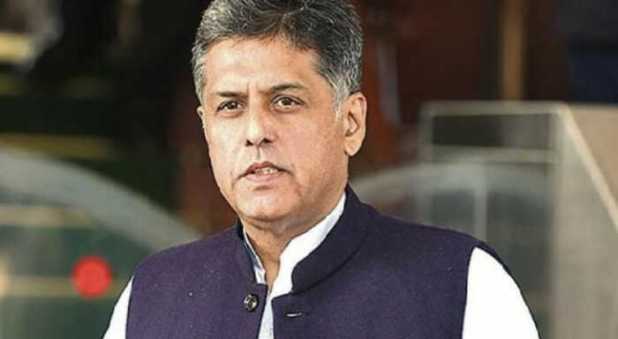
New Delhi, April 4 : Congress leader Manish Tewari on Monday said the new criminal identification law being brought by the government is “draconian”, and against the right to freedom, as he opposed The Criminal Procedure (Identification) Bill, 2022 in the Lok Sabha. Tewari, who had also opposed the Bill when it was being introduced, said the fundamental rights are being violated by this law, and raised concerns that it was laying foundations for a surveillance state. “When it was being introduced, I had said, and I repeat, this House should seriously see if such laws, which are against fundamental rights given by Constitution, should the House take up such legislations? This needs to be discussed,” he said. Tewari questioned if biological samples mean brain mapping and narco analysis as well, and said “the amplitude of this definition is so wide it conflicts with Constitutional guarantees”. He also pointed out that the Bill said measurements can be taken without the consent of the accused, and said it is against the right to be presumed innocent till proven guilty. “It also talks about gathering ‘behavioural attributes’. Who would it be applicable on? Would it lay down the foundation of a mass surveillance state, those are the questions that are extremely troubling in this Bill. Clause 3 says section 107,108,109,110, in which there is no provision of arrest, if someone is arrested under this section, police will still have the right to take samples,” said Tewari He also pointed out that the original law -The Identification of Prisoners Act, 1920, was a colonial law made to oppress people, and to target the freedom fighters. “This is a draconian law against civil liberties.” Tewari said. The Bill empowers police to record and store ‘measurements’ of a person for identification and investigation in criminal matters and to preserve such records, it was introduced in Lok Sabha today, even as several MPs called it unconstitutional and opposed the it’s introduction. The ‘measurements’ defined in the Bill includes finger prints, palm print, foot impression, photograph, iris or retina scan and physical and biological samples. The Bill empowers National Crime Records Bureau of India to collect, store and preserve the record of measurements, and for sharing, dissemination, destruction and disposal of records. AO RKM

